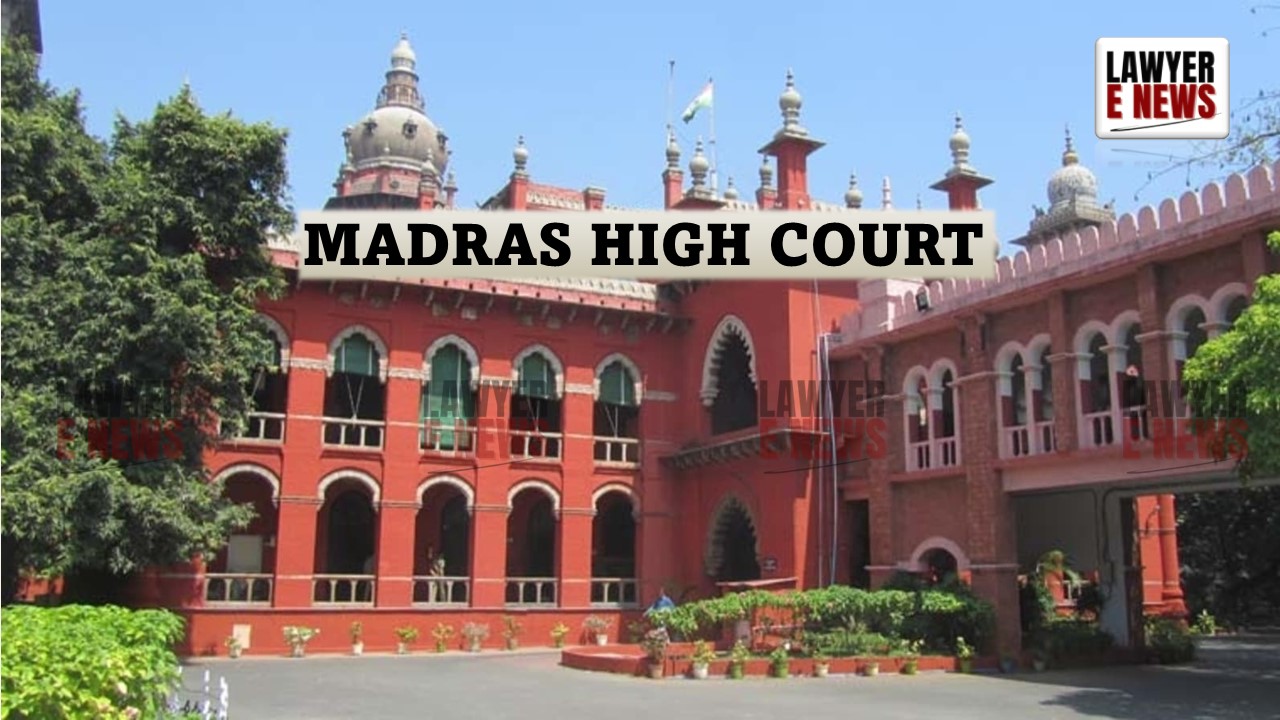-
by Admin
15 February 2026 5:35 AM



Madras High Court, under Justice M. Nirmal Kumar, delivered a significant judgment in Jayanthi vs. Deputy Superintendent of Police & Anr. (Crl.R.C.No. 1355 of 2024), addressing the application of Section 319 of the Criminal Procedure Code (CrPC) to add the petitioner, Jayanthi, as an accused in her daughter Sentharagai's murder case. The court dismissed the revision petition, upholding the trial court’s decision to summon Jayanthi based on new evidence indicating her involvement in the alleged murder.
The postmortem report revealed that Sentharagai’s death resulted from manual strangulation, directly contradicting her family’s claim that she had died due to a slip and fall in the bathroom. The court noted:
"The medical evidence confirms manual strangulation of the neck...the injuries could not have resulted from a mere slip and fall" [Para 15].
The case began on July 8, 2020, when Jayanthi lodged a complaint stating that her daughter had died after a fall in the bathroom. Initially registered under Section 174(3) of CrPC, the case took a drastic turn after the postmortem report contradicted the family’s version, prompting the police to alter the charges to Section 302 IPC (murder). The deceased’s father, the petitioner’s husband, was arrested based on a confession. As the trial progressed, the court invoked Section 319 CrPC to add Jayanthi as an accused based on new witness testimonies and medical evidence.
Invocation of Section 319 CrPC: Addition of Accused at Advanced Stage of Trial
The key legal issue was whether the trial court properly invoked Section 319 CrPC to add Jayanthi as an accused, particularly when the trial was nearing completion. Jayanthi’s counsel argued that her inclusion was based on insufficient and contradictory evidence, particularly the testimony of P.W.16, a family friend. However, the High Court rejected this argument, emphasizing that Section 319 can be invoked at any stage if new, reliable evidence emerges:
"The timing of the invocation of Section 319 is immaterial, provided new evidence justifies the addition of an accused" [Para 15].
The High Court placed significant weight on the testimony of P.W.16, who revealed Sentharagai’s prior romantic relationship and alleged that the petitioner had forcibly married her daughter to another man, which could have been a motive for murder. The court also scrutinized the inconsistent testimonies from other family members, some of whom had turned hostile, leading the court to conclude:
"The family’s protection of the accused through contradictory and hostile testimony raises suspicion" [Paras 12-13].
The court highlighted the importance of the postmortem report, which established that Sentharagai’s death was caused by manual strangulation rather than an accidental fall. This medical evidence, combined with P.W.16’s testimony regarding a possible motive, led the court to affirm the trial court's decision to summon Jayanthi as an accused under Section 319 CrPC.
The court observed that several family members had turned hostile, attempting to shield Jayanthi. Using its powers under Section 165 of the Indian Evidence Act, the trial court had questioned these witnesses to uncover the truth. The High Court supported this intervention, citing the necessity to ensure justice:
"The court rightly exercised its powers under Section 165 of the Indian Evidence Act to interrogate witnesses, exposing contradictions that justified adding the petitioner as an accused" [Paras 12-14].
The Madras High Court upheld the trial court’s decision to summon Jayanthi as an accused under Section 319 CrPC, dismissing the revision petition. The court found that the medical evidence and witness testimony provided sufficient grounds for the petitioner’s inclusion as an accused. The case was remanded to the trial court to continue the proceedings, with Jayanthi given the right to defend herself.
Date of Decision: 19.09.2024
